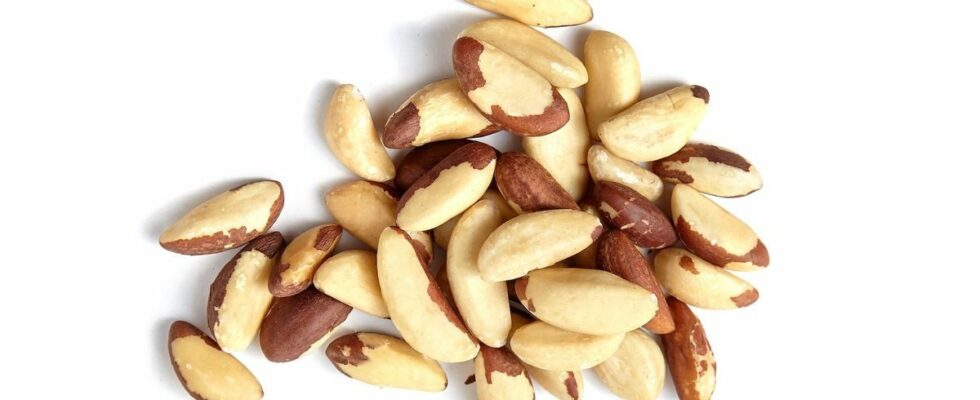Published on
Updated
Reading 3 min.
Brazil nuts distributed by Grand Frais were recalled due to the presence of aflatoxins in quantities above regulatory thresholds. You are asked not to consume them and to return them to the point of sale for a refund.
Raw shelled Brazil nuts sold in 20 kg packs or in bulk are subject to a recall.
Brazil nuts recalled due to presence of aflatoxins
These products distributed by Grand frais have the following references:
- Food / Nuts and seeds RAW SHELLED BRAZIL NUTS
- Brand: UNBRANDED
- Model or reference: Package of 20Kg Trays with variable weights
- • GTIN 3580281238363 Lot 047 packaging date from 03/01/24 to 05/17/24
- Minimum durability date between 05/01/2024 and 05/17/2024
- Packaging: 20Kg packages Variable weight trays
- Marketing date: 05/01/2024
- End of marketing date: 05/17/2024
- Storage temperature: Product to be stored at room temperature
- Geographical sales area: entire France
- Distributors: Grand Frais
In these products, the presence of aflatoxins in quantities greater than the regulatory thresholds was noted. Consequently, the manufacturer recommends not consuming them and returning them to the point of sale, for a refund before the end date of the recall procedure on June 17, 2024.
Aflatoxins: toxins produced by fungi
Aflatoxins are mycotoxins produced by two species of Aspergillus, a fungus found particularly in warm, humid regions. These compounds are recognized as being carcinogenic and genotoxic (capable of inducing congenital anomalies in children).
They can be present in foods such as nuts, peanuts, corn, rice, dried figs and other dried foods, spices, crude vegetable oils and cocoa beans, following contamination by the fungus, before or after harvest. Different types of aflatoxins are produced in nature. Aflatoxin B1 is the most common in foods and has the most potent genotoxic and carcinogenic properties. It is produced by Aspergillus flavus and Aspergillus parasiticus. Aflatoxin M1 is an important metabolite of aflatoxin B1 in humans and animals; it may be present in milk from animals that have been fed food contaminated with aflatoxin B1.
Aflatoxins are mycotoxins produced by two species of Aspergillus, fungi found mainly in warm, humid regions. Aflatoxins are recognized as being genotoxic and carcinogenic. Therefore, consumer exposure to these toxins through food must be kept as low as possible. Manufacturers are in charge of this monitoring.
Nuts, seeds, corn and rice are most at risk of contamination
Aflatoxins can be present in foods such as nuts, peanuts, corn, rice, dried figs and other dried foods, spices, crude vegetable oils and cocoa beans, following contamination by the fungus, before or after harvest. Different types of aflatoxins are produced in nature.
The risks associated with aflatoxins
According to the World Health Organization, long-term or chronic exposure to aflatoxins can have different consequences:
- They are potentially carcinogenic and can affect all organ systems, particularly the liver and kidneys. AFB1 is known to increase the risk of liver cancer, particularly in cases of hepatitis B virus (HBV) infection.
- Aflatoxins are mutagenic in bacteria (they affect DNA), genotoxic and have the ability to cause birth defects in children, growth retardation.
- Aflatoxins have an immunosuppressive effect, so they can reduce resistance to infectious agents (HIV or tuberculosis, for example).
- In case of exposure to large doses, aflatoxins cause acute poisoning (aflatoxicosis) which can be fatal due to liver damage. Consumption of foods containing aflatoxin concentrations greater than or equal to 1 mg/kg is suspected of causing aflatoxicosis.
Don’t panic, however, in France, food is extremely controlled and the regulatory measures in force in the European Union are among the most severe.
